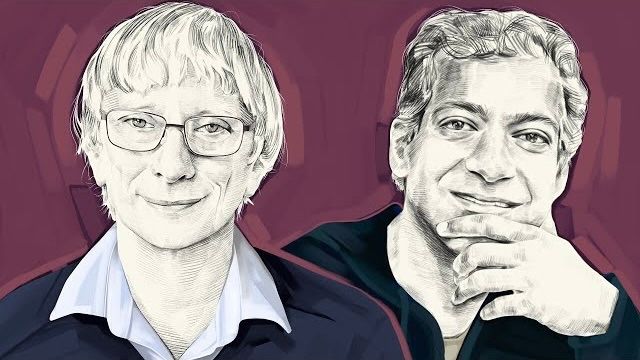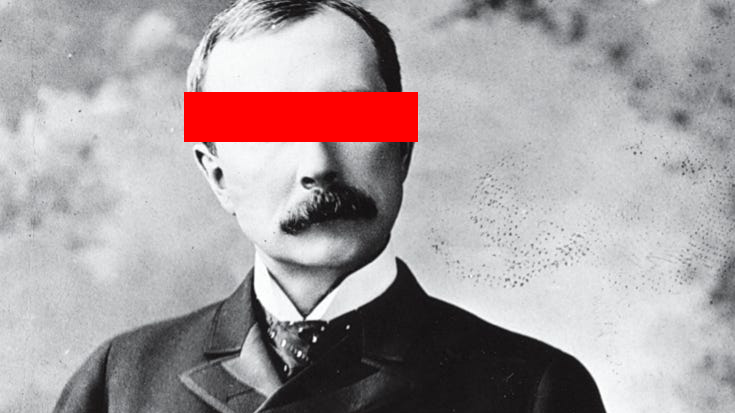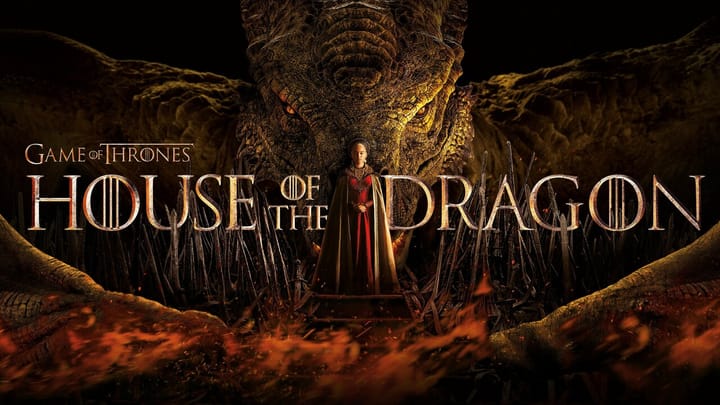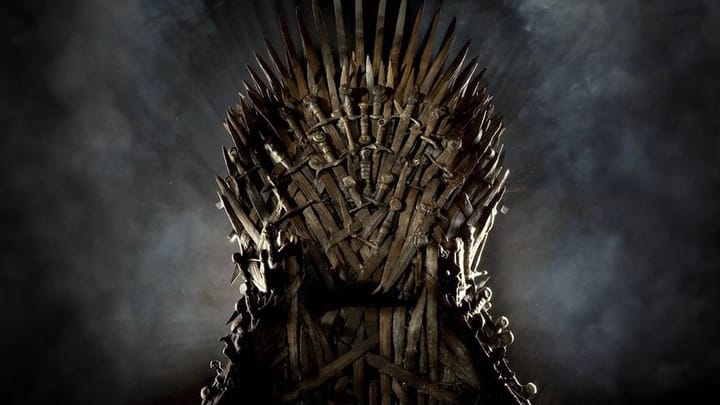David Deutsch and Naval Ravikant on Tim Ferriss Podcast (Key Takeaways)
Deutsch on knowledge, epistemology, AGI, AI, and more.

My key takeaways and notes from the best podcast episode I've ever listened to:
Key Takeaways
- We get our theories from conjecture (guesses) alternating with criticism.
- Explanations are stories and the best stories are theories. (Myths are also explanations, just bad ones.)
- Theories are inherently fallible. We WANT to replace our theories.
- Charlie Munger says "every year that goes by that you do not get rid of a long-help belief is a year wasted."
- Charlie also says to update your mental models as soon as you get a better one.
- "I can now rejoice even in the falsification of a cherished theory, because even this is a scientific success.”—John Carew Eccles
- All knowledge begins with a problem. Then you conjecture (guess) explanations (stories). Then others critique your explanation. The explanation could be synthesized, added to, rearranged, or combined with other explanations until it becomes a theory.
- False theory of evolution: Lamarckism believes that a blacksmith gets large muscles from his work and his sons inherit those muscles. They believe that actions you take in your lifetime will change your kid's genes, which is false.
- Group selection is another incorrect theory of evolution proposed by Steven Jay Gould. They believe that traits are selected to promote the good of the species as a whole, which is false.
- New theories are rare. Peoples often just bring up old ideas that are already proven to be incorrect.
- An explanation is a story that accounts for something.
- The principle of optimism comes out of conjecture and criticism. Optimism is an epistemological principle. Claiming that something is unknowable is a bad explanation. Every question can be answered with knowledge. Every problem can be solved with knowledge. Humans create knowledge.
- Explanations that involve the supernatural are intrinsically not good explanations.
- Why can't we do anything we want? We don't have the knowledge. If we had the knowledge, we could do anything. The only limit to what we can do are the laws of physics. There could be more laws of physics that we don't know about.
- “Isn't there a disconnect between knowledge and action? What about the guy who just reads a lot but never applies his knowledge?”
- There is a connection between what we understand and what we can do. If we don't understand something, we have no chance of doing it. But if we do understand it, we have to test it. And testing it is doing it. If our tests work, then we understand it and have done it successfully.
- Reading books, taking courses, listening to podcasts, and talking to smart people is essential. This is how you get ahead.
- Deutsch thinks we’re far from AGI. He says he thinks that AI is a wonderful technology that will go much farther. But AI has nothing to do with AGI. They are opposites in many ways. AI follows a rigid output. AGI is special because it is defiant, different, and creative. An AGI can do anything (like a human) but an AI can only do the narrow thing that it was designed to do. An AI must follow rules and if its output follows those rules perfectly, we consider it good. But an AGI that always follows our rules isn't just a bad AGI, it's not AGI at all. AGI must be able to break the rules. An AGI, like a person, might refuse to answer a question you ask it.
- Be different for the sake of being different. That is what makes you human (and useful). That difference is where creativity comes from. AI cannot be creative. The hallmark of AGI is that it can be different, disobedient, and creative. Until we have AGI, you set yourself apart by being different.
- The first amendment is a key reason why we have scientific progress. The first amendment is a theory of how humans should interact with each other. You cannot just choose these theories randomly. They are conditioned by the laws of epistemology. There are ways of interacting that can create knowledge and there are ways that can't. Free speech can create knowledge. Limiting speech creates knowledge inefficiently or stops knowledge creation.
- The biggest, best, and most complex systems start out small and simple. Humans are iterative evolutions of bacteria.
- Humans are the only general intelligence that we know of. Humans are extremely special in the context of the universe, contrary to some prevailing ideas about us being “only a speck in the universe” or “only the evolution of a tadpole".
- Everything we see in the universe is in the past. The deeper we look into the universe, the deeper into history we look.
- There are lots of ways to be wrong, but there are only a few ways to be right.
- Wealth is not a number. Wealth is the set of all transformations that you are capable of bringing about. There is no limit to wealth. There is a slight correlation between wealth and the amount of money, energy, land, and power you have, but they are all outdone by the amount of knowledge you have. In the long run, you can only pay people with unique knowledge (the kind of knowledge that the other person lacks). This is why you need to make a uniquely good product or service.
- Wealth is a byproduct of knowledge.
- Health, relationships, and wealth are byproducts of knowledge.
- Wealth, like knowledge, is unlimited.
- Resources and wealth can be found or created with new knowledge. Oil was seen as waste material (especially when it would seep out of the ground and slow down farming or construction) until the second half of the 1800s, then it became a resource that created huge wealth for Rockefeller. Solar power made sunlight a resource. Before, it was only used by plants in photosynthesis. Fire turned wood into a resource. Nuclear fission turned uranium into a resource.
- We create and uncover resources with knowledge.
- Things with more knowledge dominate things with less knowledge.
- Deutsch recommends studying what interests you.
- AI won’t replace humans. AI still requires humans to tell it what to make and to curate its output.
- Don't destroy the means of error correction. Free speech. Conjecture alternating with criticism. No dogma.
Recommended Books
- Read and reread both of Deutsch's books. The Beginning of Infinity and The Fabric of Reality.
- Read and reread Karl Popper.
- Read The Science of Can and Can't by Chiara Marletto.
- Learn quantum physics (Deutsch says there is no good book for beginners though).
- Listen to ToKCast with Brett Hall.
- Read Philosophy and the Real World by Bryan Magee.
- Read Teranesia by Greg Egan.
Notes
The prevailing idea is that scientists go into the world, observe something, and then a bunch of other scientists test it and re-create it and the more examples we collect of it the more true it becomes and then we call it a law. This is false.
We do not get our scientific theories from the senses.
We get our theories from conjecture (guesses) alternating with criticism.
Explanations are stories and the best stories are theories. (Myths are also explanations, just bad ones.)
Theories are inherently fallible. We WANT to replace our theories.
- This is like when Charlie Munger says "every year that goes by that you do not get rid of a long-help belief is a year wasted."
- Charlie also says to update your mental models as soon as you get a better one.
- "I can now rejoice even in the falsification of a cherished theory, because even this is a scientific success.”—John Carew Eccles
There is no such thing as the "scientific method".
The institutions, like the PhD process, force the old ideas to be challenged—you must come up with something new. The scientists and PhD’s themselves often act against science and try to be dogmatic or adhere to the status quo but the institutions ultimately make them find something new to critique about the existing theories.
All knowledge begins with a problem. Then you conjecture (guess) explanations (stories). Then others critique your explanation. The explanation could be synthesized, added to, rearranged, or combined with other explanations until it becomes a theory.
Theories often start out as theoretical ideas before they are proven. For instance, it's only a theory that asteroids can be used to get resources. We haven't proven this theory yet. But we have that idea, which makes asteroids more valuable today. The idea of how to turn something into a resource makes that potential resource immediately more valuable.
If there is only one theory (there is only one conceivable good explanation), then we (rightly) often reject the experiment as an error or a fluke because we have no alternative explanations for why it happened.
We don't often do experiments that question theories where we only have that one theory. That usually only happens when the theory goes against common sense. When what actually happens is completely different than what you conceptually think would happen. We test those just to double check.
You have to not talk about the supernatural when having a debate because it just destroys the debate.
Evolutionists, rather than arguing why God doesn't exist, should argue why Lamarckism isn't true. Lamarckism believes that a blacksmith gets large muscles from his work and his sons inherit those muscles. They believe that actions you take in your lifetime will change your kid's genes, which is false.
Group selection is another incorrect theory of evolution proposed by Steven Jay Gould. They believe that traits are selected to promote the good of the species as a whole, which is false.
New theories are rare. Peoples often just bring up old ideas that are already proven to be incorrect.
In 1978, Deutsch wrote a paper that said that to prove multiverse theory you'd need a quantum computer and an AGI. The paper explained conceptually how one would set up the experiment (but, of course, quantum computers and AGI didn't even exist then.)
Naval said Deutsch’s concept of what an explanation is upgraded his thinking more than anything else. This is probably why he recommends The Beginning of Infinity over The Fabric of Reality.
Everyone should read chapters 1-3 of The Beginning of Infinity. And the last 5-6 chapters because they don't have any difficult physics or math and they are super useful.
An explanation is a story that accounts for something.
- There are good explanations and there are bad explanations.
- The story that the elephant got its trunk because it put its snout into the river and something pulled on it is a bad explanation. It's a bad explanation because it doesn't explain what we want to know--the offspring of that elephant wouldn't have a long trunk, so it doesn't work as an explanation. It's just a myth. Interestingly, Deutsch says that this explanation is better than nothing--even a bad guess is better than no guess at all.
- Darwin's theory of evolution by natural selection is a good explanation. DNA & genes are good explanations.
- A good explanation can't be easily varied and still accounts for the problem or question. Ex) the elephant explanation is bad because the elephant can be easily varied—a dog or a giraffe could also have its snout pulled but they don't have trunks like an elephant.
- Popper says that science begins with myths. You start with bad explanations and then over time, the explanations get better and better.
- Good explanations begin with bad explanations.
- You conjecture variants of the story and criticize them and the original story. You choose the one that survives the criticism.
The principle of optimism comes out of conjecture and criticism. Optimism is an epistemological principle.
Explanations that involve the supernatural are intrinsically not good explanations.
When you have a God or the supernatural or have the protagonist wake up from a dream to make your plot work, you know the story is terrible. It takes no writing skills. It's also lazy in argumentation--you can never be wrong if you do one of these.
- The part in Wednesday where Goodie Addams goes into Wednesday through her necklace to heal her was an example of this—made the story worse.
- What about horror movies? You can leave in the supernatural or God as long as it isn't an explanation—as long as it isn't used to fundamentally resolve a plot hole.
What if the question you want to know is unknowable? What if there is no way to know why we have 5 fingers or if the universe is finite or infinite? You can claim that any problem is unknowable, but that would be a bad explanation. It's just as bad as using the supernatural or God as an explanation. This is the foundation for optimism—claiming that something is unknowable is a bad explanation. Every question or problem simply requires more knowledge to figure out. Pessimism is an error. Pessimists simply don't know that they just need to know more.
- Deutsch says that instead of invoking God to fix a plothole, what if you just ended the play and said "we don't know how it ends”? That's not a good play either.
Why can't we do anything we want? We don't have the knowledge. If we had the knowledge, we could do anything. The only limit to what we can do are the laws of physics. There could be more laws of physics that we don't know about.
Tim asks (paraphrasing): “Isn't there a disconnect between knowledge and action? What about the guy who just reads a lot but never applies his knowledge?”
- There is a connection between what we understand and what we can do. If we don't understand something, we have no chance of doing it. But if we do understand it, we have to test it. And testing it is doing it. If our tests work, then we understand it and have done it successfully.
- Reading books, taking courses, listening to podcasts, and talking to smart people is essential. This is how you get ahead.
Deutsch thinks we’re far from AGI. He says he thinks that AI is a wonderful technology that will go much farther. But AI has nothing to do with AGI. They are opposites in many ways. AI follows a rigid output. AGI is special because it is defiant, different, and creative. An AGI can do anything (like a human) but an AI can only do the narrow thing that it was designed to do. An AI must follow rules and if its output follows those rules perfectly, we consider it good. But an AGI that always follows our rules isn't just a bad AGI, it's not AGI at all. AGI must be able to break the rules. An AGI, like a person, might refuse to answer a question you ask it.
Be different for the sake of being different. That is what makes you human (and useful). That difference is where creativity comes from. AI cannot be creative. The hallmark of AGI is that it can be different, disobedient, and creative. Until we have AGI, you set yourself apart by being different.
Deutsch says AGI requires an entirely new kind of programming.
AGIs will make mistakes. They are not infallible.
The first amendment is a theory of how humans should interact with each other. You cannot just choose these theories randomly. They are conditioned by the laws of epistemology. There are ways of interacting that can create knowledge and there are ways that can't. Free speech can create knowledge. Limiting speech creates knowledge inefficiently or stops knowledge creation.
- The first amendment is a key reason why we have scientific progress.
- Timestamp: ~1 hour in podcast
There is a common idea that you can stop an evil dictator by preventing them from saying or thinking certain things. That's a suboptimal solution that likely doesn't work. We have a good idea of what is morally right but we shouldn't think that we have the final idea of what is right (ethics will develop over years, decades, and centuries). Our children, AGIs, and aliens (E.T.'s) are all the things that can potentially create knowledge in the future. We should assume that our ethics (what we think is morally right) are true (or at least more true than the alternatives). But ethics should be comprised of good explanations. These explanations or moral theories should win out against worse theories, like the bad theories of an evil dictator. The way you prevent a child from becoming the next Hitler is to explain to them why our ethical theories are the best explanations. It shows a lack of belief in the validity of your moral theory to say that we need to handicap AGI or limit the speech/thoughts of people/children.
If you think that you can only be right by limiting someone else's speech, thoughts, or brain, then you don't have confidence in your own ideas.
In 1950, Turing thought we would have developed AGI by the year 2000.
AGI will not require much computing power. It will require a new philosophical theory of what the program is supposed to do.
Popper said that the good life is falling in love with a problem and living with it happily for the rest of your life.
- What is the problem you most want to solve?
- If you ever solve this problem, it will create more problems or open your mind to more questions/problems, so you don't have to worry about your favorite problem going away.
The biggest, best, and most complex systems start out small and simple. Humans are iterative evolutions of bacteria.
Humans are the only general intelligence that we know of—humans are extremely special in the context of the universe, contrary to some prevailing ideas about us being “only a speck in the universe” or “only the evolution of a tadpole".
Everything we see in the universe is in the past. The deeper we look into the universe, the deeper into history we look.
Atoms determine the shape of crystals. Super small things can make an impact on how the larger product is. (This is the basis of Atomic habits—small behaviors can turn you into someone great.)
The hierarchy rule—large things are not affected by small things.
- Deutsch says the hierarchy rule is not true. The hierarchy rule is broken often. David gives an example of photosynthesis. Oxygen-producing photosynthesis was a genetic mutation in a single DNA molecule that oxygenated earth and made it habitable. Small things can have a big impact on big things.
Creative imagination (stories in our minds?) allows humans to create things like fire. Other animals didn't develop fire because they could not come up with the idea that fire could help them or come up with the idea of how to make fire.
There are lots of ways to be wrong, but there are only a few ways to be right.
Truth is the thing that is most often repeated across the multiverse.
Wealth is not a number. Wealth is the set of all transformations that you are capable of bringing about. There is no limit to wealth. There is a slight correlation between wealth and the amount of money, energy, land, and power you have, but they are all outdone by the amount of knowledge you have. In the long run, you can only pay people with unique knowledge (the kind of knowledge that the other person lacks). This is why you need to make a uniquely good product or service.
- This theory of wealth has reach: it applies at the individual and civilizational levels.
- Wealth is a byproduct of knowledge.
- Health, relationships, and wealth are byproducts of knowledge.
- Charlie Munger (Warren Buffett’s business partner) has gone so far as to say that if you read and think enough, you don't have to work.
- Wealth, like knowledge, is unlimited.
- Resources and wealth can be found or created with new knowledge. Oil was seen as waste material (especially when it would seep out of the ground and slow down farming or construction) until the second half of the 1800s, then it became a resource that created huge wealth for Rockefeller.
- A theory of how to turn a rock into a resource makes the rock a resource even without touching the rock. The second you develop the theory, the rock is now a resource—it is more valuable.
- The thought (theory) of mining an asteroid made asteroids more valuable even though nobody has actually mined an asteroid yet.
- Solar power made sunlight a resource. Before, it was only used by plants in photosynthesis.
- Fire turned wood into a resource.
- Nuclear fission turned uranium into a resource.
We create and uncover resources with knowledge.
People break the hierarchy rule (bigger things dominate smaller things) because we have general intelligence. We can come up with creative solutions that allow something small to make a big impact.
- More accurate than the hierarchy rule: Things with more knowledge dominate things with less knowledge.
Learn quantum physics (Deutsch says there is no good book for beginners though).
- He says that Faraday's physics is outdated and Feynman's physics is a little outdated too.
Deutsch recommends studying what interests you.
In the back of Deutsch's 2 books, there's a list of other books he recommends.
Be careful of "ism's" They are all fallible.
Listen to TokCast with Brett Hall.
Study Constructor theory. Read The Science of Can and Can't by Chiara Marletto.
- It's a theory of what can and can't be done.
AI won’t replace humans. AI still requires humans to tell it what to make and to curate its output.
It is more important that you have a disobedient child than an obedient child. Because disobedience is what makes humans special. Disobedience = creativity.
Don't destroy the means of error correction. Free speech. Conjecture alternating with criticism. No dogma.
Deutsch: "It's the character that said that, not me. The character is Socrates. I'm doing what Plato did; I put my ideas into the mouth of Socrates and then I don't have to take responsibility for it."
Read and reread Karl Popper.
Read and reread both of Deutsch's books.



Comments ()